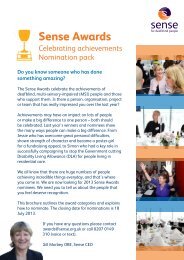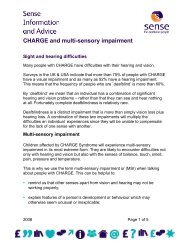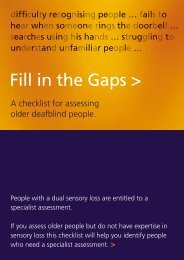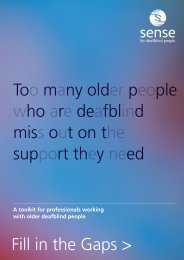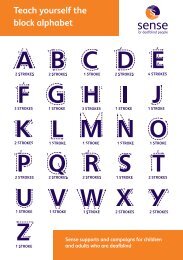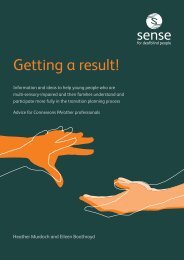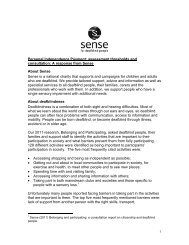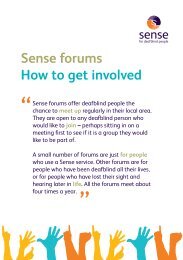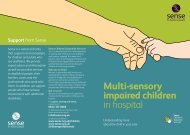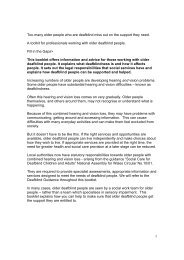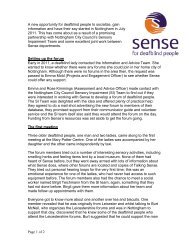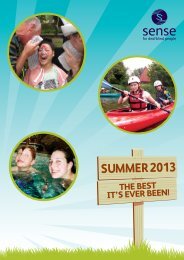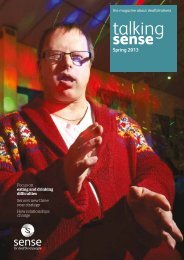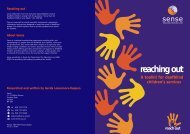MSI Unit Curriculum - Sense
MSI Unit Curriculum - Sense
MSI Unit Curriculum - Sense
You also want an ePaper? Increase the reach of your titles
YUMPU automatically turns print PDFs into web optimized ePapers that Google loves.
<strong>MSI</strong> <strong>Unit</strong> <strong>Curriculum</strong>: Phase 4Pupils at Phase 4 use many different areas within the school and their timetablesare subject-based. They spend some time included with other groups ofpupils, either in the main school or (if they communicate through signing) inthe neighbouring school for pupils with hearing impairments. Many learningactivities remain cross-curricular, to promote generalisation and reduce promptandcontent-dependency.<strong>MSI</strong> <strong>Unit</strong> <strong>Curriculum</strong>: Phase 4The <strong>MSI</strong> <strong>Unit</strong> <strong>Curriculum</strong> for pupils at Phase 4 seeks to develop their learning asfollows:Social relationships and emotional developmentPupils are able to express their feelings clearly and show some empathytowards others. They initiate and briefly maintain interactions with peers.They respond in small group situations and are beginning to understandsocial codes of behaviour such as sharing.They can sustain extended interactions with trusted adults who know themwell, although the adult may need to structure the interaction and repairbreakdowns.Staff encourage pupils to talk about their emotional responses and to link theseto events (for example ‘I’m cross because…’). Pupils are encouraged to be awareof others’ feelings and responses, especially where these are linked to their ownbehaviour.Stories in library and drama sessions are used as a basis for discussion of thecharacters’ feelings and actions.Pupils are encouraged to engage in role play, for example by having dressingupclothes readily available. Staff may initiate and/or join in with role play,especially to model ‘what if?’ scenarios.Social communication (for example, greeting, thanking, maintaining overtinterest in another’s utterance) is modelled by staff and increasingly expectedfrom pupils.Staff model decision-making processes using speech, signing and/or other formsof language – for example, ‘I want the last cake, but Aftab wants it too and hehasn’t had a cake yet, so it’s fair that he should have it’.86



